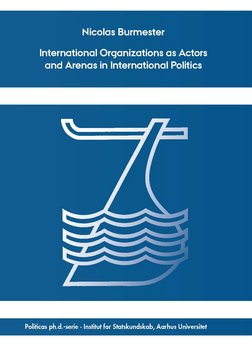Nicolas Burmester
International Organizations as Actors and Arenas in International Politics

The dissertation advances the understanding of international organizations in the field of International Relations regarding two research areas. First, how can we conceptually grasp international organizations that veer from the norm of formal international organizations and explain how they function and what they do in international politics? Second, once we have conceptually sorted international organizations, how can we assess whether or to what extent they have the capacity to develop actorness in international politics? The report and the six individual papers significantly improve conceptual, methodological and theoretical tools for studying international organizations and their actorness. The project offers an improved conceptual distinction of international organizations that allows for a theoretical and empirical distinction based on differences in the institutionalization. The dissertation expands the distinction between formal and informal international organizations and argues that pseudoformal international organizations form a third type, which can be expected to function distinctly as instruments, arenas, and actors. Using case-based and variance-based research designs, the dissertation offers extensive methodological arguments about the study of international organizations’ actorness. Specifically, it proposes innovative ways to study cohesion, a key dimension of actorness. The empirical parts expand our understanding of specific international organizations as arenas for state interaction. The project shows how the informal international organization BRICS managed to create the New Development Bank and the Contingent Reserve Agreement and how ASEAN as well as EU member states succeed (or fail) in speaking with a common voice in the UN General Assembly.
![]() Ophavsretten tilhører Politica. Materialet må ikke bruges eller distribueres i kommercielt øjemed.
Ophavsretten tilhører Politica. Materialet må ikke bruges eller distribueres i kommercielt øjemed.